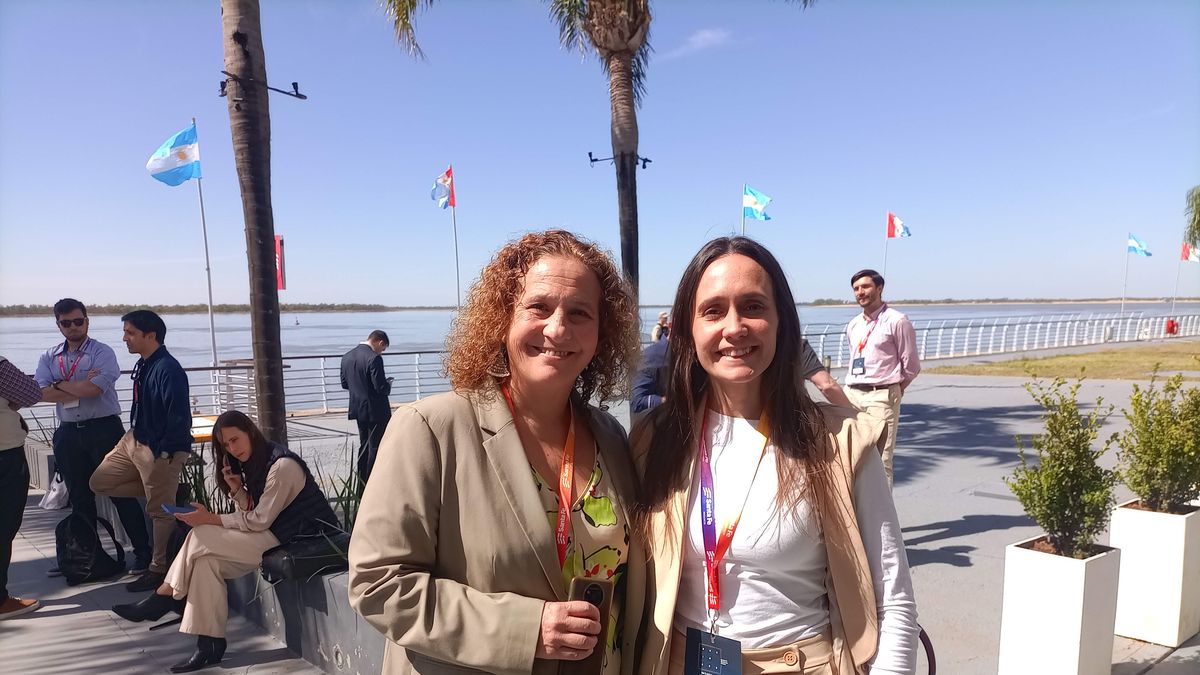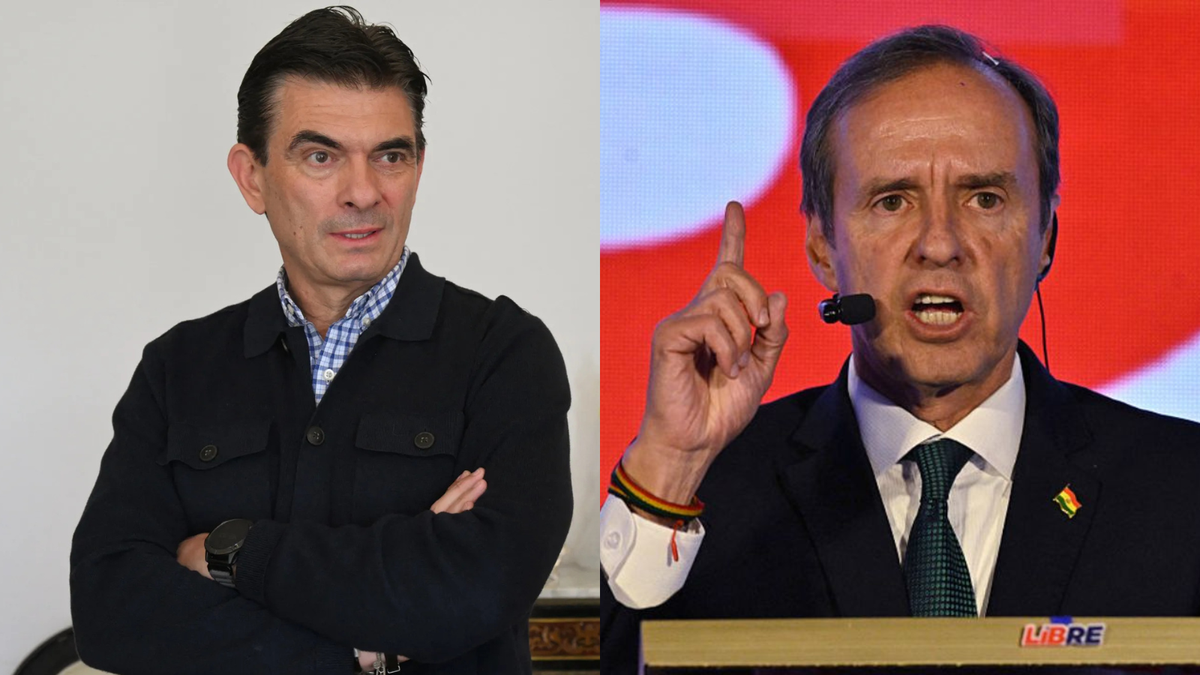Case I: Ingredients to improve the body’s adaptation to the environment
Kresko RNAtech is a biotechnology startup founded by Rosario entrepreneurs at the end of 2021 which develops natural ingredients from molecules extracted from food, which have health benefits.
“We discovered a new category of nutrients that we call dietary RNAs and our particularity is that we have the largest library of these molecules worldwide. And we have a platform that combines Cell biology, artificial intelligence and data science to predict where to look for these molecules and be able to extract them from the source, which is fresh food, which they lose in the food that reaches our table, and also predict what function they may have,” explained Carla Borini, one of the founding partners of the startup.
Carla has a degree in Biotechnology and a PhD in Biological Sciences. Silvana Spinelli, another of the founders, has the same background. They teamed up with an expert who combines computer science and biological sciences in his curriculum.
Kresko RNAtech was selected by the American accelerator IndieBiothe world’s largest biotechnology company, to receive seed capital.
“We were established two years ago as a local investment and last year we received international investment in San Francisco, United States, and we are trying to finish the validations of our first minimum viable product that It is a supplement to improve sleep quality“, explained Silvana Spinelli.
“They are ingredients for the wellness market in general. Our business model aims to be suppliers of companies which then reach the final consumers, whether they are dietary supplements, cosmetics, or food, and why not one day, the pharmaceutical industry,” he added.
What is the application of the ingredients you develop?
“They can be used for regeneration, so they would be useful in cosmetics; or they could have functions of regulating stress associated with increasing serotonin levels, to treat sleep disorders. We could also be part of the functional food industry by supplementing other products in the industry with these molecules,” says Carla.
How are you developing your financing plan?
“We are still a pre-seed company, we received funding from an Argentine investor and last year we received an investment from a San Francisco accelerator, IndieBio, which was the starting point for us to set foot in the global market like the United States. Today we are meeting some of the goals we had set for ourselves to open a seed round for the beginning of next year. During the business forum we were able to speak with some investment funds to tell them more about our projects,” Silvana said.
Do you have your own laboratory?
“We can develop a finished product like the dream and make a supply agreement. But we are still at a pilot scale. A good part of the seed financing has to do with expanding the facilities and infrastructure to really be able to supply the potential market demand.
We have two businesses. We offer the digital service to identify completely new types of ingredients, and we can develop a product based on these ingredients for the needs of the wellness market, or to improve the efficiency of an already existing product.
What are the main challenges you face as a company?
First, it was about explaining this crazy, new idea of thinking that an RNA molecule could improve the way our body adapts to the environment. So, the first milestone was to validate a science that was super novel and disruptive. Now the challenge is commercial, so we put together a team of business and operations experts who come from the technology industry, which is one of the ones that knows best how to raise capital.
Another challenge is communicating the existence of a new ingredient, as happened at some point with the man who discovered probiotics, or the one who said that hyaluronic acid helps your skin. We have to tell our clients and they in turn tell theirs that there is a new category of ingredients that are dietary RNAs and that they not only solve a problem but re-educate our cells to function better.
Our technology enables us to enhance stress response mechanisms. In addition to the product for treating sleep disorders, we aim for a second major objective, which is to improve digestive disorders using this technology.
And what difficulties did you have to overcome from the beginning of your activities?
“I don’t like to see the glass half empty. We have certainly had to deal with difficulties with the entry of goods, exchange rate instability that means that we never know how much we can budget for salaries and costs. But what doesn’t kill you makes you stronger. We are highly resilient and we resolve plans in the time that is necessary,” concluded Silvana.
Case II: the transition from startup to a biotechnology SME
DETx MOL SA is a company dedicated to the design, production and validation of molecular kits for the diagnosis of infectious and genetic diseases in humans.
DIEGO CHOUHY.jpg
Rosario-based researcher Diego Chouhy, founder of the startup DETx MOL.
The pandemic fIt was a key milestone for the development of this startup founded by Rosario researcher Diego Chouhy. He developed a kit for the detection of Covid. But due to the lack of infrastructure for mass production, he transferred its production and marketing to Wiener Laboratories.
With this background, the startup was selected by the insurance group La Segunda for a financing program. That was in 2015 and from 2018 it was sealed in a formal alliance that still exists.
“Our company did not take the typical startup journeywe grew organically because we have as a founding partner to the insurance group La Segunda. It is rare in Argentina for a company to finance another company in the initial stages. In addition to the direct investment from La Segunda, we won a subsidy in 2017 from 450 thousand dollars from Empretecno. 80 percent of that money was allocated to equipment,” said Diego Chouhy.
How did you approach the financing process?
We operate under the logic of a biotech SME rather than a startup. We are supported by La Segunda. We know that going out to seek capital is a critical point, but luckily I didn’t have to do it because it’s not my expertise at all. They provided us with funds, as well as all the administrative and legal aspects.
And what infrastructure do you have for the production of the kits?
Due to the success of this development, in 2022 La Segunda built a 400-square-meter laboratory on the Rosario-Buenos Aires highway where we do all the development, which is the core of the company. Now we are 13 people. During the pandemic, when we made the Covid kit, we were three people.
Do you already generate sales revenue?
Not yet. For now we only receive contributions through loans generated internally by La Segunda. And it will continue like this for a while longer. This year we intend to take the first steps in commercialization. When we made the covid kit for Wiener laboratories we received royalties for sales, but it was a one-off thing.
How many products do you have available?
We currently have 17 different products in development, some of which have already been approved by Anmat, others awaiting registration and others in the validation process. We will be finalizing them this year to have them available for sale starting next year.
We have a first kit approved by ANMAT. And now we are in the process of production and beginning to market it. We have started the registration of two more kits, one of which is the HPV kit for diagnosing the human papillomavirus to prevent cervical cancer. It will be used as a tool to replace the pap smear. It is a novel format that replaces part of what is imported and will then be exported. We have also started to develop a series of products for food safety. For example, meat products.
Do you plan to export your products at some point?
We want to first develop experience in the local market and then begin internationalization. We want to validate our project here through sales in the country. The international validation is similar to that here, with some differences, but that will help us decide which markets we will target when we decide to look for other markets.
Source: Ambito
I am a 24-year-old writer and journalist who has been working in the news industry for the past two years. I write primarily about market news, so if you’re looking for insights into what’s going on in the stock market or economic indicators, you’ve come to the right place. I also dabble in writing articles on lifestyle trends and pop culture news.




